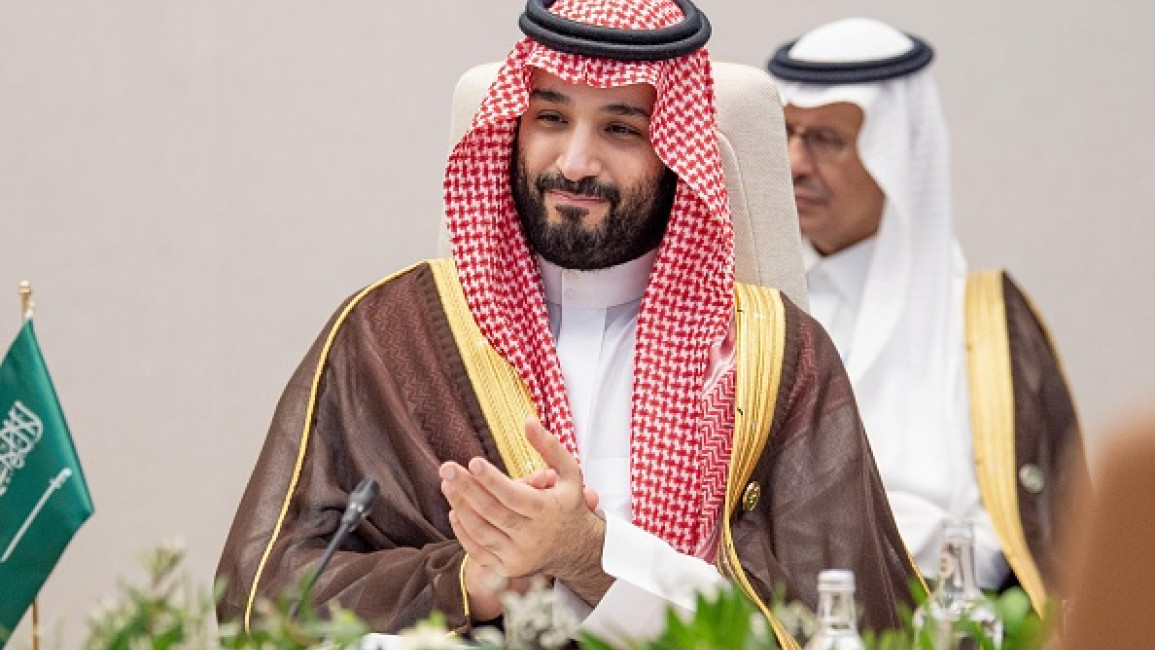Saudi Arabia wants nuclear programme, US weapons 'in exchange for Israel normalisation': report
Saudi Arabia could make demands for US approval of a civilian nuclear programme as a condition for normalisation with Israel, a US report said on Saturday.
The New York Times claims that Crown Prince Mohammed bin Salman, Saudi Arabia’s de facto ruler, made such demands to US Secretary General Antony Blinken during his trip to Riyadh earlier this month.
The Crown Prince may also seek greater access to US weapons and a guaranteed defence pact with Washington in exchange for Israeli normalisation, which the US has been attempting to broker in recent years.
Blinken reportedly briefed Israeli Prime Minister Benjamin Netanyahu on bin Salman's terms in a 40-minute phone call following the meeting, in what was described as a "turn" in the Biden administration’s attempts to mediate between Tel Aviv and Riyadh by two officials, NYT said.
Blinken's trip, where economic cooperation with the Gulf kingdom was discussed, was the latest in a series of visits by top US officials to both Saudi Arabia and Israel in recent months, as a means to facilitate talks between the two and improve its once-frosty relations with Riyadh.
Despite such demands, both the US and Israel have expressed reluctance to Saudi Arabia’s demands for a nuclear programme.
Such a request would require approval from the US Congress, where some members of Joe Biden’s Democratic Party are likely to vote against it, due to their less-than-positive attitude towards Riyadh, NYT said.
Meanwhile, Netanyahu, who was re-elected as prime minister for the third time following the Israeli elections late last year, could face strong opposition from the national security establishment should he consent to a Saudi nuclear programme, the report added.
In addition to such requests, officials told the US newspaper that normalisation between Saudi Arabia and Israel would require "concrete gestures" and "real accommodations" for Palestinians who suffer under Israeli occupation, though no further details were given.
Despite hints towards normalisation, Riyadh has continued to echo a long-standing Arab League stance that such a move with Israel would only occur should an independent Palestinian state be created.
Meanwhile, Netanyahu has expressed great enthusiasm on the matter since becoming premier. In December last year, he told Saudi broadcaster Al-Arabiya that normalisation "would change our region in ways that are unimaginable".
Both Netanyahu and bin Salman, also known as MbS, have reportedly spoken on the phone twice in recent weeks, according to a report by The Jerusalem Post in May, where normalisation was "discussed" but "no progress was made".
A potential Saudi-Israeli rapprochement would be the latest in a string of Arab states establishing diplomatic relations with Israel amid the Donald Trump-brokered Abraham Accords.
Morocco, Bahrain and the UAE normalised ties with Israel in 2020. Sudan also followed suit.
A National Security Council representative told the NYT that Joe Biden’s Middle East policy includes "expanding and strengthening" the controversial Accords, as well as efforts to help "establish diplomatic relations between Tel Aviv and Riyadh".
Such a move triggered almost-unanimous uproar in much of the Arab world and among Palestinians, who described the move as a "stab in the back" for their cause as Israel continues to illegally occupy the Palestinian territories and besiege the Gaza Strip while inflicting violence against Palestinians.



